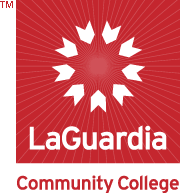Document Type
Assignment
Publication Date
11-2018
Abstract
This assignment was used in English 102 Writing through Literature course and was designed to meet LaGuardia’s Inquiry and Problem Solving Core Competency and Written Communication Ability. Students were expected to critically reflect on issues-- such as water crisis, migration--addressed in Linda Sue Park’s novel A Long Walk to Water (2010) and then explore those issues in a global context, for instance, water crisis in Rajasthan, India, or migration from Central America to USA. Discussions prior to the assignment prepared students to study the literary text, both as an end in itself and as a bridge to other academic disciplines. The learning objectives that the assignment aimed to achieve were:
1) What can literature teach us about how people think, act, dream, and rebel?
2) What are some of the commonalities and differences that can help us to observe as we travel across time and space?
3) In what ways can the text act both as mirror of its own time period and also as a model for literary achievement?
LaGuardia’s Core Competencies and Communication Abilities
The assignment was part of English 102 course which almost all students at LaGuardia are required to take before they graduate. The assignment foregrounds process based writing that aims for students to demonstrate a sound analysis of the literary text while also considering cross cultural conversations. The focus was to help students develop critical thinking and writing skills through the study of different genres, in this context, fiction. Students were expected to transfer their knowledge of close reading skills while composing essays that involved integrating texts and data acquired through library research.
This ENG 102 assignment was not part of a CTL seminar or mini-grant and/or assignment development workshop but, as stated above, the core competency and communication ability rubrics attached to this course directly informed the way in which the assignment was designed. The primary purpose of the assignment was to encourage students to synthesize the information from the text in addressing issues that impact humanity, in both local and global spaces. As all the students were non-majors and freshmen, the assignment allowed students to draw connections from their lived experience to use literature to ground and begin writing. It also gave students confidence in appropriating networks of information and communication to connect the literary readings with what is happening both locally and globally. This aligned with the IPS rubric of advancing a claim from the text to comprehend complex issues that would generate sustained life-long learning. The assignment served the purpose of informed conclusions through seeing or responding to the world through writing.
The assignment formed 30% of the final grade of the semester (15% low-stake assignments leading to the final essay + 15% finished essay).
Creative Commons License

This work is licensed under a Creative Commons Attribution-Noncommercial 4.0 License



Comments
This resource is part of the Learning Matters Assignment Library.